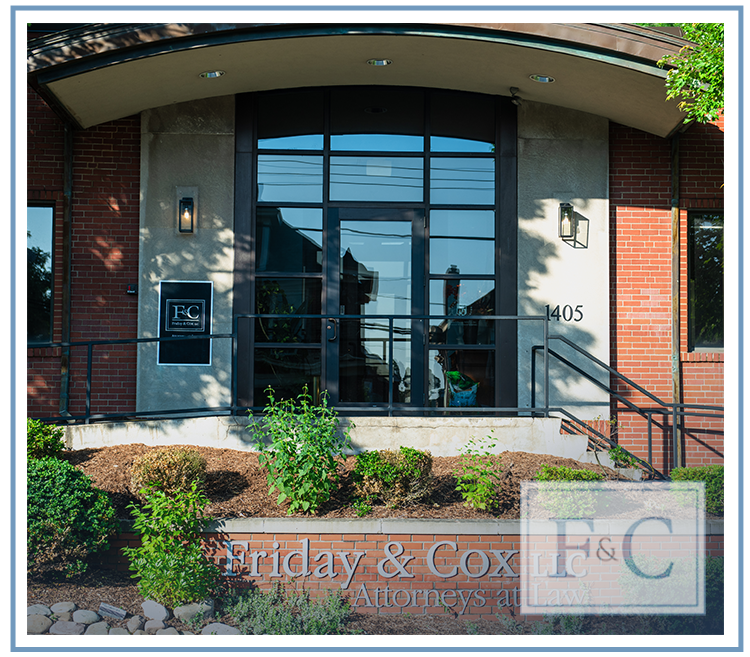
Pittsburgh Medical Malpractice Attorneys
Injured as a Result of Medical Negligence in Pittsburgh?
At Friday & Cox LLC we are dedicated to providing trusted legal advice and representation to victims of medical malpractice in Pittsburgh. We understand how devastating the effects of medical malpractice can be, and we are committed to helping our community seek justice and compensation from those responsible.
Our experienced medical malpractice lawyers offer personalized and thorough assessments of each case, ensuring that all aspects are explored comprehensively before making any decisions. We stress the importance of early consultation to help preserve evidence and gather essential information that can strengthen a case.
If you or someone you love has been harmed by medical malpractice, call us at (412) 900-8250 to schedule a free consultation today.
What Is Medical Malpractice?
Medical malpractice occurs when a healthcare provider — such as a doctor, nurse, or hospital — fails to provide treatment that meets the accepted standard of care, resulting in injury or harm to a patient. In other words, it’s not enough that a bad outcome occurred; the patient must show that the provider’s actions (or inaction) deviated from what a competent medical professional would have done in similar circumstances.
Examples of medical malpractice can include a misdiagnosis, surgical errors, or improper medication administration. To prove malpractice, the patient must typically establish four key elements:
- Duty of Care – The healthcare provider owed the patient a professional duty to deliver competent care.
- Breach of Duty – The provider failed to meet that standard through action or omission.
- Causation – The provider’s failure directly caused injury or worsened the patient’s condition.
- Damages – The patient suffered measurable harm, such as medical bills, lost wages, or pain and suffering.
Because medical malpractice claims are highly complex and often require expert testimony, it’s crucial to have an experienced Pittsburgh medical malpractice attorney on your side.
What Are the Common Forms of Medical Malpractice?
Medical malpractice can occur in many different ways. Some of the most frequent forms of medical negligence include:
- Misdiagnosis or Delayed Diagnosis: A doctor’s failure to correctly diagnose a condition can lead to delayed or improper treatment. Conditions like cancer, stroke, or heart disease can worsen rapidly if not diagnosed early.
- Surgical Errors: Mistakes during surgery — such as operating on the wrong body part, leaving surgical tools inside the patient, or causing internal damage — can result in catastrophic injury or death.
- Medication Errors: Prescribing or administering the wrong medication or dosage is one of the most common causes of preventable patient harm in hospitals and pharmacies.
- Birth Injuries: Negligence during pregnancy, labor, or delivery can cause serious injuries to both mother and baby, including cerebral palsy, oxygen deprivation, or nerve damage.
- Anesthesia Errors: Incorrect anesthesia levels or failure to monitor a patient during surgery can result in brain damage, heart complications, or wrongful death.
What Are the Common Causes of Medical Malpractice?


Why Choose Friday & Cox LLC?
-
Unparalleled Client ServiceYour inquiries are returned 24 hours a day, 7 days a week. Call for a free case evaluation at (412) 900-8250.
-
Excellent Track RecordWe bring more than 100 years of combined experience and results to helping injured people obtain the compensation they need to rebuild their lives.
-
We Are Willing To Go All The WayOur lawyers are trial tested and our firm has won many verdicts and countless settlements.

Medical Malpractice FAQs
Here are several frequently asked questions regarding medical malpractice claims in Pittsburgh:
How do I know if I have a medical malpractice case?
If your condition worsened or you suffered unexpected complications due to a doctor’s mistake, you may have a valid claim. A lawyer can review your medical records and consult with experts to determine whether negligence occurred.
How long do medical malpractice cases take in Pennsylvania?
These cases can take months or even years, depending on their complexity, the number of parties involved, and whether a settlement is reached before trial.
Can I sue a hospital for a doctor’s mistake?
In some cases, yes. Hospitals can be held liable if the negligent doctor was an employee or if the facility’s own negligence contributed to the injury (such as poor staffing or lack of supervision).
What compensation can I recover?
You may be eligible for compensation for medical costs, lost wages, future care expenses, pain and suffering, and more.
What should I do if I suspect medical malpractice?
Seek medical attention right away from another provider to prevent further harm, and contact a qualified Pittsburgh medical malpractice lawyer immediately to preserve your rights.
-
"You all were wonderful, and I would tell anybody to come to you for help."- Joseph L.
-
Dear Paul & Ivexis, thank you both for all of the hard work that you spent on my case! I truly appreciate you helping me in my time of need - it is a great help to me! Your professionalism and abilities have enabled me to get my life back on track after my injury. Thank you again for representing me - I am forever grateful!- Christian B.
-
“They went out of their way to help me.”- David M.
-
“They where up front and that means a lot. They worked hard!”- Aaron D.
-
“If your serious about hiring a lawyer for personal injury call here first.”- Former Client
-
“Everything was done in a timely manner. I would definitely recommend their services to people.”- Stacey
-
“Handled my mother’s fall/ injury litigation with compassion, empathy and professionalism”- Carl L.
-
“If you are serious about hiring a lawyer for personal injury call here first.”- Former Client



Our Settlements & Verdicts
Our top priority is to devise customized legal strategies that are tailored to the unique legal needs of our clients, no matter how simple or complicated their situations, might be.
-
$12.8 Million Work Injury
-
$7.5 Million Defective Product
-
$4 Million Work Injury
-
$2.6 Million Motor Vehicle Accident
-
$1.3 Million Medical Malpractice




